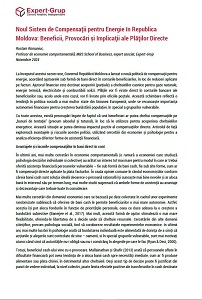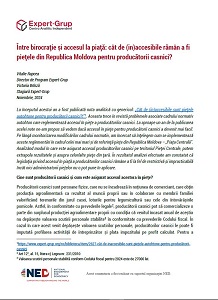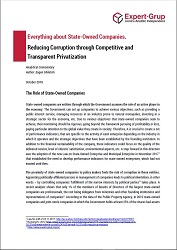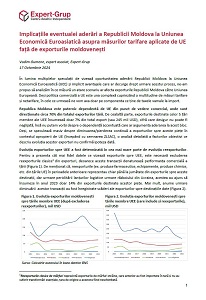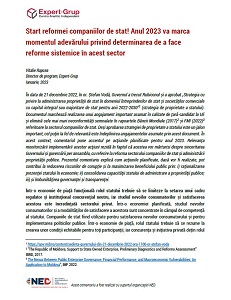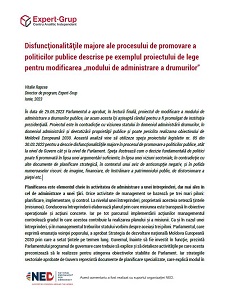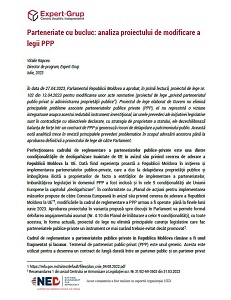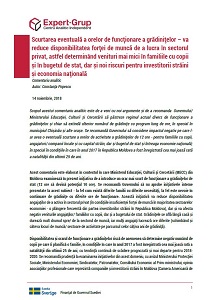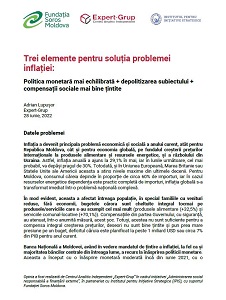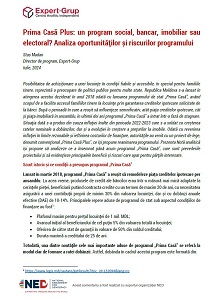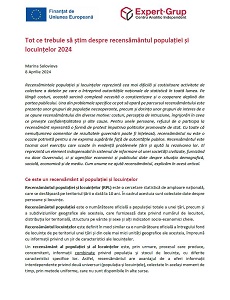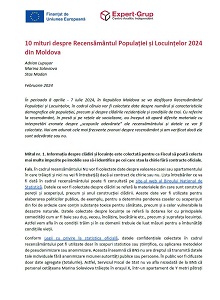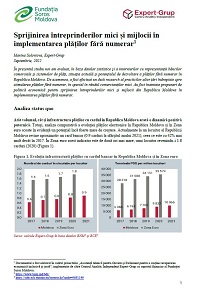
Supporting small and medium-sized enterprises in the implementation of cashless payments
Sprijinirea întreprinderilor mici și mijlocii în implementarea plăților fără numerar
Keywords: cashless payment; cashless economy;
In the present study, we evaluated, based on statistical data and interviews with representatives of commercial banks and payment systems, the current situation and the development potential of cashless payments in the Republic of Moldova. A desk research was also carried out of the practices of other countries aimed at stimulating cashless payments, especially among small traders. Economic policy proposals were submitted to support small and medium enterprises in the Republic of Moldova in the implementation of cashless payments.
More...
